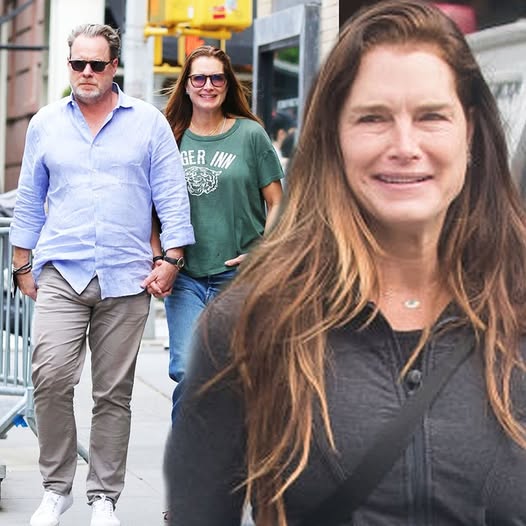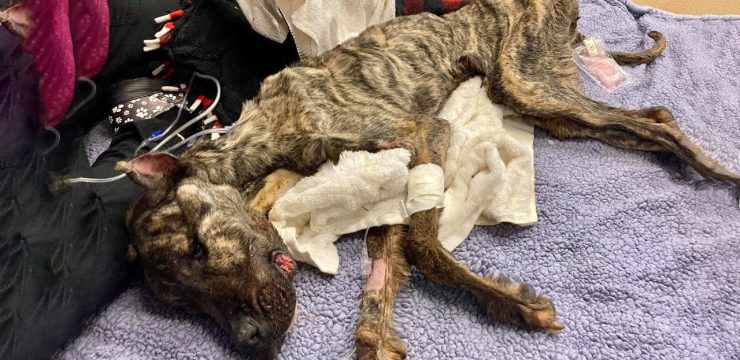Brooke Shields is undeniably one of the most iconic actresses and models of her generation. Her beauty and talent have captivated audiences for decades, earning her a revered place in American pop culture. Yet despite the admiration she’s received, Brooke has faced deeply personal challenges that she’s only now beginning to speak openly about. From body image struggles rooted in her childhood to confronting painful past trauma, Shields is telling her story with honesty and courage.

Brooke first rose to fame as a teenage model and actress. Her breakthrough came in 1980 when she starred in a provocative Calvin Klein jeans ad shot by the legendary photographer Richard Avedon. The ad made headlines and solidified her place in the spotlight. While many praised her beauty, behind the scenes, Brooke was grappling with self-image issues that had been instilled in her from a young age.
Much of that internal struggle, she now reveals, stemmed from her complex relationship with her mother, Teri Shields, who also served as her manager. Teri was a dominating force in Brooke’s life, and while she helped launch her daughter’s career, she also left emotional wounds. Brooke recalls, “My mother would get drunk and say: ‘Why don’t you move your fat ass?’ So, I’ve always believed I had a fat ass.” That kind of criticism left a lasting impact on her perception of herself. Though her mother passed away in 2012 after a long battle with alcoholism, the psychological effects of her harsh words remained with Brooke for years.
Healing, however, did come in time—thanks in large part to the support of her husband, screenwriter Chris Henchy. The two have been married for over 17 years, and his unwavering love played a key role in helping Brooke embrace her body and rediscover her self-worth. She shared, “I would walk backwards out of rooms, and he’d say: ‘No, I want to grab onto you.’ He really celebrated my womanliness and my body. And I needed a man to celebrate me.” His encouragement helped her rebuild the confidence that had been stripped away during her formative years.
Before marrying Henchy, Shields was briefly married to tennis legend Andre Agassi from 1997 to 1999. Throughout her career, Brooke often felt conflicted about how her looks were perceived by the world. She remembers modeling swimwear at just 15 years old and still feeling like her body didn’t measure up. “I modeled swimwear when I was 15, and even then I didn’t think I had a swimsuit body,” she admitted.
Despite being on countless magazine covers, Shields never felt like she fit the mold of a typical supermodel. “I was a cover girl, not a supermodel. I was ‘neck up’—the face, the eyebrows—and I was always described as ‘athletic’; ‘not rail-thin’; ‘not a runway model.’ Those messages, they seep into your consciousness,” she explained. These subtle critiques embedded themselves into her sense of identity, causing her to question her worth even at the height of her fame.
Years later, she took on a new swimsuit campaign with Calvin Klein. This time, she approached it with a more intentional mindset, dedicating herself to being in top shape. “I knew that if I didn’t look my best, I’d be embarrassed and mad at myself. I stopped drinking beer and wine, and I worked out three times a week. I was the best version of myself,” she said, though she added candidly, “I was also hungry.” Even in her 50s, she faced the pressures of maintaining a perfect appearance, showing how those early insecurities never completely fade.
Brooke’s story proves that even those considered the epitome of beauty are not immune to self-doubt and criticism—especially when that criticism comes from those closest to them. What’s inspiring, however, is how she has used these experiences as fuel for growth and self-acceptance. Her journey of healing took time, love, and resilience.
Recently, Shields opened up about another deeply painful chapter of her life: a sexual assault she endured over 30 years ago. In an interview with People magazine, she disclosed that shortly after graduating from Princeton University, she was assaulted by a Hollywood executive. At the time, she was hopeful the meeting would lead to a job opportunity. Instead, after dinner, the executive convinced her to come to his hotel room under the pretense of calling a cab—and once inside, he assaulted her.
“I didn’t fight,” she confessed. “I just froze.” The incident left her filled with guilt and self-blame. “I kept saying, ‘I shouldn’t have done that. Why did I go up with him? I shouldn’t have had that drink at dinner.’” For years, she kept the assault a secret, confiding only in her close friend and former security consultant Gavin de Becker. She was afraid that if she spoke out, she would be blacklisted and lose her career.
Now, she is finally ready to speak her truth. “I’m more angry now than I was able to be then,” she shared. “If you’re afraid, you’re rightfully so. They are scary situations. They don’t have to be violent to be scary.” Her decision to speak out is not just about finding personal closure but also about giving others the strength to share their own experiences. “Everybody processes their own trauma on a different timeline. I want to be an advocate for women to be able to speak their truth,” she said.
Her story is featured in the upcoming two-part documentary Pretty Baby: Brooke Shields. “Doing the documentary, you see it all together, and it’s a miracle that I survived,” she said, reflecting on her life’s journey. From the emotional scars left by her mother to the trauma of assault, Brooke’s resilience stands as a powerful example for others.
Brooke Shields has endured more than many realize, but she continues to thrive. Her willingness to be vulnerable and share her experiences is not only brave but also deeply meaningful. By speaking out, she’s offering strength and solidarity to others who might be struggling in silence. We send Brooke our heartfelt support and hope her story reaches those who need it most.





